International Raw Food Day 2017: 9 Everyday Foods That Are Healthier When Eaten Raw
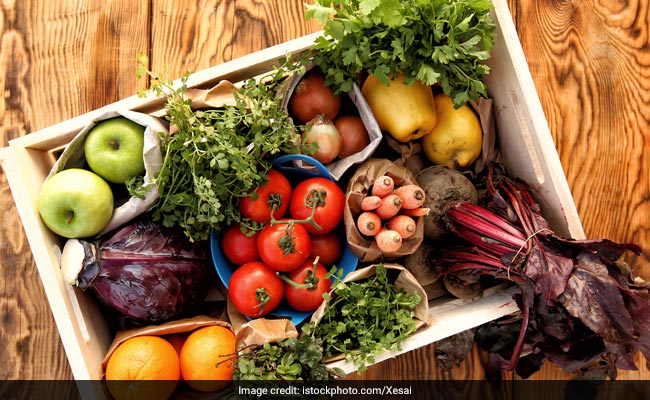
The International Raw Food Day, celebrated every year on 11th July, is for everyone to learn more about the concept of raw food and adopt a healthy lifestyle. A lot of people, around the world, ‘Go Raw for a Day’, eating freshly prepared raw meals to encourage people to include more fresh and raw foods in their daily meals. A part of this philosophy is derived from the principles of the Paleolithic diet which is believed to have been followed by our ancestors. It mainly consists of foods that were procured through hunting and gathering and nothing that it is cultivated by man like raw fruits and vegetables, nuts and seeds.
While we won’t suggest that you completely turn to a raw food diet, but there are some fruits and vegetables which are healthier when eaten raw. Cooking, steaming, boiling, and stir-frying may have an effect on the nutrients of certain foods. According to Dr. Rupali Datta, Consultant Nutritionist at Fortis-Escorts Hospital, “Cooking may destroy the Vitamin C and B vitamins in such foods.” She suggests that the following foods are best eaten raw to maximize their health quotient.
1. Broccoli
This dark green vegetable is rich in Vitamin C and calcium. It also contains a compound called sulforaphane which is known to lower blood pressure, and improve heart health. It has been seen that boiling broccoli can reduce the level of sulforaphane by up to 70 percent. Therefore, it is best to add broccoli to your salad which goes best with a citrus dressing or simply saute it with some garlic and herbs.
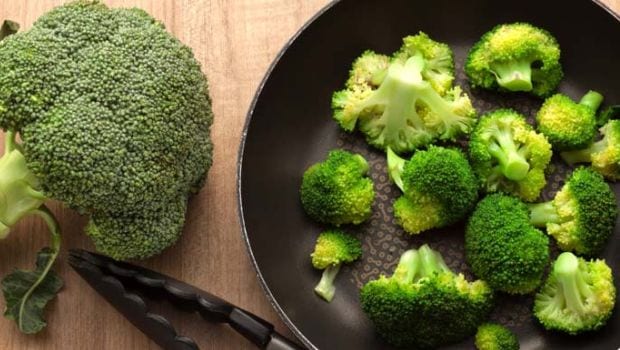
Photo Credit: Broccoli
2. Coconut
In its raw state, coconut is one of the most hydrating foods and is known for its naturally high levels of electrolytes. They are also a source of healthy fats. Dried or desiccated coconut may not contain the same health benefits. However, the same may not apply to coconut oil. It may be actually better to saute and steam your vegetables with a drop of coconut oil as it will add powerful antioxidants to your dish.
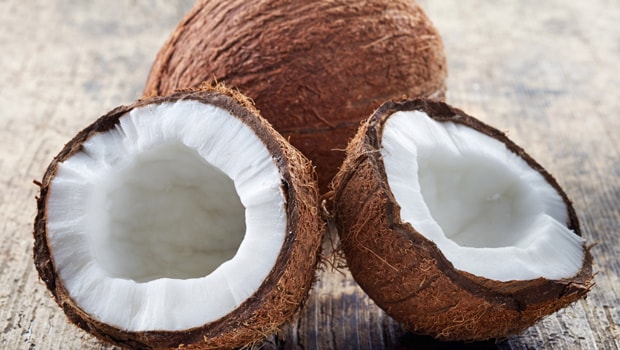 Photo Credit: Istock
Photo Credit: Istock
3. Apples
A large portion of the nutrients and minerals in apples may be lost due to the dehydration process while baking or heating. Moreover, it tends to increase the sugarlevels and therefore apples may contain more calories in the form of concentrated sugar and carbohydrates when cooked. Another thing to bear in mind, eat the apple with its skin on as the skin contains the maximun fiber and not the flesh.
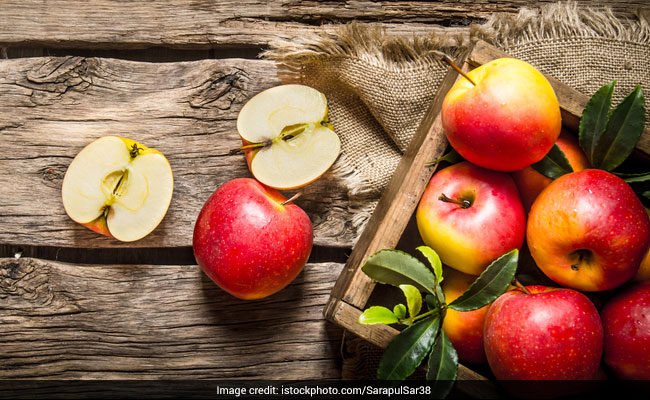
4. Bell Peppers
Bell peppers contain a surprisingly high amounts of Vitamin C, even more than oranges (about 193 mg per 100 grams) According to the National Institutes of Health in the United States, if bell peppers are cooked at a temperature above 375 degrees, it can destroy the nutritional value completely, especially the Vitamin C as it is heat sensitive.
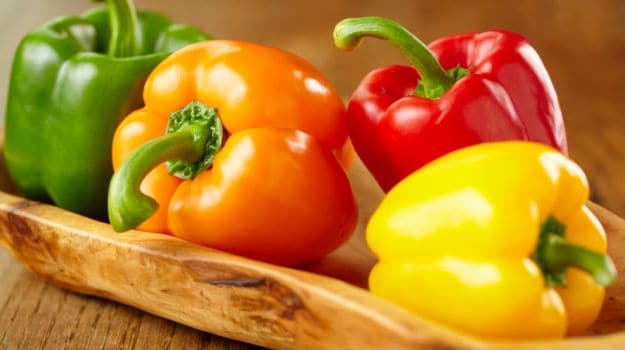
Photo Credit: Istock
5. Berries
Dried berries may not be as nutritious as fresh one because they may lose most of their water-soluble vitamins and minerals during the dehydration process. Most berries are rich in Vitamin C along with antioxidants like polyphenols and anthocyanins that are sensitive to light and temperature. Therefore, it is suggested to keep the time and temperature of cooking them at minimum to preserve their qualities.
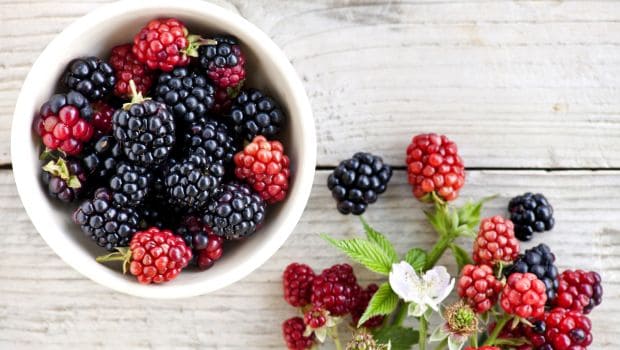
Photo Credit: Istock
6. Nuts
Raw nuts rule. In case of roasted nuts, the fiber and protein may remain intact, but they majorly lose out on the three key micro-nutrients which are iron, magnesium and phosphorous. The biggest hit is in the iron content. Moreover, most of the roasted nuts tend to have an extra gram of fat as they are oil-roasted and also higher sodium which increases the overall calories. So, prefer raw nut but those that have been soaked overnight and soaking in water makes it easier for the body to absorb all their nutrients.
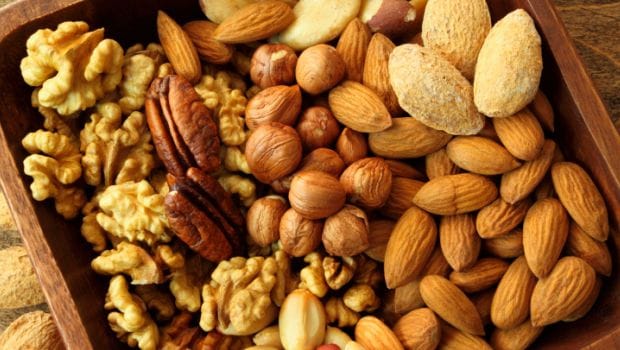
Photo Credit: Istock
7. Guava
Guavas are sometimes cooked in certain regional Indian cuisines and made into a curry. Although it tastes delicious, know that heat can destroy the water-soluble nutrients present in the fruit. For instance, Vitamin C and types of the vitamin Bcomplex are water-soluble and you may lose out on them.
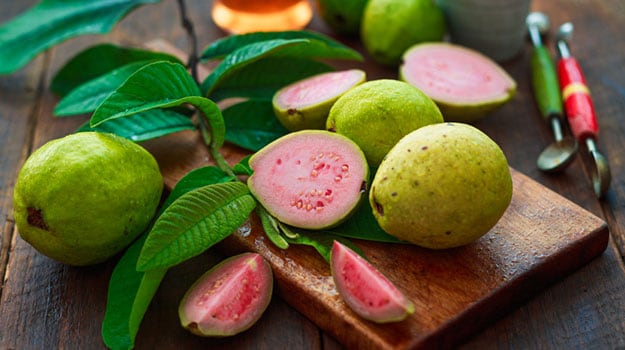
Photo Credit: Istock
8. Sprouts
Sprouts are a great source of vitamin C, fiber, folate, copper and manganese. The quality of these nutrients diminish on cooking, especially Vitamin C and folate which are heat sensitive.
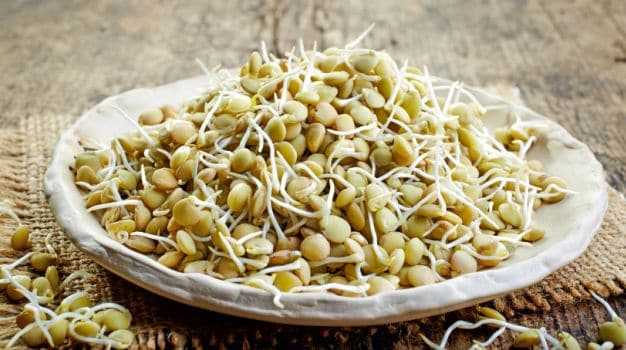
Photo Credit: Istock
9. Mushrooms
You may love to indulge in a plateful of sauteed mushrooms, but know that cooking on high temperatures depletes the Vitamin D content of mushrooms by half. Mushrooms are one of the few natural food sources of Vitamin D which we actually derive from the sun’s rays. Mushrooms contain a ‘pro-vitamin’ called ergosterol that is converted into vitamin D when exposed to the sun’s ultraviolet rays. Cooking for longer periods can also make them tough.
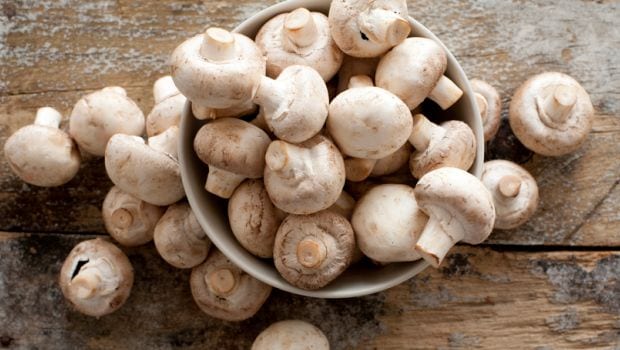
Photo Credit: Istock
Besides the above, here’s another quick tip. When using herbs add them at the end of cooking as heat can destroy their essential oils and make the less healthy.



